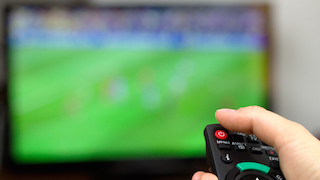Poll: More Than 50 Percent of U.S. Say Sports Betting Should Be Legal - Seton Hall University
Friday, March 3, 2023
More Than 50 percent of U.S. Say Sports Betting Should Be Legal
Fans Say Announcers Should Be Mum On Odds During Games
'Too Many Sports Betting Ads During Games' Says Majority of Fans

Amongst the general population 54 percent said sports betting should be legal, with just 22 percent opposed. For self-described sports fans that number rose to 62 percent (20 percent opposed) and 74 percent of avid fans (just 15 percent opposed).
Those numbers when measured against a Seton Hall Sports Poll from a year ago, rose (47, 59 and 72 percent respectively in favor of legal sports betting in February 2022). Interestingly, the largest rise came from non-sports fans, with 41 percent in favor this year (24 percent opposed); last year the number was 33 percent in favor and 28 percent opposed.
In your opinion, should sports betting be legal? (2023)
| N=1,534 | General Population |
Sports Fan* |
Non Fan |
Avid Fan |
Casual Fan |
| Yes | 54% | 62% | 41% | 74% | 56% |
| No | 22% | 20% | 24% | 15% | 23% |
| Don't know/No opinion | 24% | 18% | 35% | 11% | 21% |
In your opinion, should sports betting be legal? (2022)
| N=1,520 | General Population |
Sports Fan* |
Non Fan |
Avid Fan |
Casual Fan |
| Yes | 47% | 59% | 33% | 72% | 53% |
| No | 27% | 25% | 28% | 19% | 28% |
| Don't know/No opinion | 26% | 16% | 39% | 9% | 19% |
These were among the findings of a Seton Hall Sports Poll among 1,534 adults across the country. The poll featured a national representative sample from YouGov weighted on U.S. Census Bureau figures for gender, age, ethnicity, education, income and geography and has a margin of error of +/- 2.5 percent.
Have You Bet?
Asked if they have ever placed a bet on a sporting event (polled one week before the
2023 Super Bowl), 34 percent of the general population, 48 percent of sports fans
and 60 percent of avid fans said they had, as opposed to 28, 41 and 56 percent respectively
from one year ago.
Have you ever placed a bet on a sporting event? (2023)
| N=1,534 | General Population |
Sports Fan* |
Non Fan |
Avid Fan |
Casual Fan |
| Yes | 34% | 48% | 13% | 60% | 42% |
| No | 61% | 48% | 82% | 35% | 54% |
| Don't know/No opinion | 5% | 4% | 5% | 5% | 4% |
Have you ever placed a bet on a sporting event? (2022)
| N=1,520 | General Population |
Sports Fan* |
Non Fan |
Avid Fan |
Casual Fan |
| Yes | 28% | 41% | 11% | 56% | 34% |
| No | 65% | 54% | 78% | 40% | 61% |
| Don't know/No opinion | 7% | 5% | 11% | 4% | 5% |
Of those who had placed a sports bet, 49 percent of the general population said they had placed one in the last six months. For sports fans that number rose to 53 percent and for avid fans 61. In 2022 those numbers were 42 percent for general population (+7 in 2023), 48 percent for sports fans (+5 in 2023) and 63 percent for avids (-2 for 2023).
In the last 6 months, did you place a sports bet? (2023)
| N=512 | General Population |
Sports Fan* |
Non Fan |
Avid Fan |
Casual Fan |
| Yes | 49% | 53% | 19% | 61% | 48% |
| No | 50% | 46% | 77% | 38% | 51% |
| Don't know/No opinion | 1% | 1% | 4% | 1% | 1% |
In the last 6 months, did you place a sports bet? (2022)
| N=422 | General Population |
Sports Fan* |
Non Fan |
Avid Fan |
Casual Fan |
| Yes | 42% | 48% | 15% | 63% | 38% |
| No | 56% | 51% | 82% | 35% | 62% |
| Don't know/No opinion | 2% | 1% | 3% | 2% | 1% |
If You Bet, Are You More Likely Watch?
Perhaps not surprisingly, those who bet are more likely to watch. With 77 percent
of those among the general public who said they had engaged in sports betting saying
that placing a bet makes it more likely they would watch a broadcast of the game.
That number rose to 80 percent of sports fans and 79 percent of avid fans.
"The leagues and networks have an obvious interest in sports betting which is further verified by these numbers," said Professor Charles Grantham, Director of the Center for Sport Management within Seton Hall's Stillman School of Business, which sponsors the Poll. "But this interest doesn't come without caveats and costs. As the audience and revenue continue to expand and the stakes get higher, scrutiny must also increase – and that comes with a cost. The integrity of the games is paramount and must be protected at all times. The leagues will continue, in this context, to pursue an 'integrity fee,' and I think they have a valid argument."
If you placed a bet on a sporting event, would it make you more likely to watch the broadcast of that event?
| N=512 | General Population |
Sports Fan* |
Non Fan |
Avid Fan |
Casual Fan |
| Yes | 77% | 80% | 63% | 79% | 81% |
| No | 17% | 15% | 27% | 18% | 13% |
| Don't know/No opinion | 6% | 5% | 10% | 3% | 6% |
Pushback on Betting Commercials and Commentary
If there is greater acceptance of betting in general, reaction to advertising for
the industry is generally unfavorable. Fifty percent of the general population say
they do not enjoy betting-related advertisements (22 percent said they do). Among sports fans
43 percent did not enjoy while 30 percent of avid fans were not fans of these commercials.
Among those avid fans, 44 percent said they enjoy sports betting commercials.
I enjoy watching betting-related advertisements
| N=1,534 | General Population |
Sports Fan* |
Non Fan |
Avid Fan |
Casual Fan |
| Agree | 22% | 32% | 7% | 44% | 26% |
| Neither agree nor disagree | 28% | 25% | 32% | 26% | 25% |
| Disagree | 50% | 43% | 61% | 30% | 49% |
"Advertising, if over employed, can turn potential customers off," said Seton Hall Marketing Professor Daniel Ladik, who is chief methodologist for the poll. "If there are too many sports betting ads and sports fans don't enjoy them, then brand equity for these brands will decrease and future customers cannot be counted on."
Too Much Advertising?
Among the general population, 42 percent say there are too many sports betting ads
shown during sporting events (9 percent disagree, with the remainder neither agreeing
nor disagreeing). Among sports fans that number rises to 52 percent who say "too many
ads" with 10 percent disagreeing. Among avid fans, 60 percent agree, with 10 percent
in disagreement).
There are too many sports betting related ads shown during sporting events.
| N=1,534 | General Population |
Sports Fan* |
Non Fan |
Avid Fan |
Casual Fan |
| Agree | 42% | 52% | 29% | 60% | 48% |
| Neither agree nor disagree | 49% | 38% | 65% | 30% | 43% |
| Disagree | 9% | 10% | 8% | 10% | 9% |
There was widespread agreement that betting-related products should have warning labels (64 percent of general public, 73 percent of sports fans and 75 percent of avid fans in agreement).
All betting-related products should also have warning labels
| N=1,534 | General Population |
Sports Fan* |
Non Fan |
Avid Fan |
Casual Fan |
| Agree | 64% | 73% | 52% | 75% | 73% |
| Neither agree nor disagree | 28% | 20% | 38% | 19% | 21% |
| Disagree | 8% | 7% | 10% | 6% | 6% |
Asked if there should a ban of betting commercials during the games themselves, 47, 56 and 61 percent agreed, while 47, 51, 48 percent respectively felt broadcasters should not be updating betting odds during games.
There should be a whistle-to-whistle ban on betting-related advertising during sporting events, meaning there would be no betting-related ads from the time a game starts until it is over, but ads could be shown both before and after a game.
| N=1,534 | General Population |
Sports Fan* |
Non Fan |
Avid Fan |
Casual Fan |
| Agree | 47% | 56% | 35% | 61% | 53% |
| Neither agree nor disagree | 44% | 35% | 58% | 28% | 38% |
| Disagree | 9% | 9% | 7% | 11% | 9% |
There should be a ban on sports broadcasters providing updated betting odds during a game
| N=1,534 | General Population |
Sports Fan* |
Non Fan |
Avid Fan |
Casual Fan |
| Agree | 47% | 51% | 40% | 48% | 54% |
| Neither agree nor disagree | 38% | 31% | 49% | 30% | 32% |
| Disagree | 15% | 18% | 11% | 22% | 16% |
There was also a sensitivity to improperly exposing minors to gambling with 52, 56 and 60 percent respectively expressing concerning to improperly exposing them to that.
Sports betting advertisements improperly expose minors to gambling
| N=1,534 | General Population |
Sports Fan* |
Non Fan |
Avid Fan |
Casual Fan |
| Agree | 52% | 56% | 44% | 60% | 54% |
| Neither agree nor disagree | 34% | 30% | 41% | 28% | 31% |
| Disagree | 14% | 14% | 15% | 12% | 15% |
Sports Bets vs. Casino Bets: Better Chance?
The general public is a third/third/third divided on whether they have a better chance
of winning a sports bet than they do winning at casino games with 35 percent saying
yes, 33 percent no and 32 percent "don't know/no opinion." Among sports fans, 47 percent
of fans and 61 percent of avid fans feel they have a better chance with sports betting.
As with the other findings, these numbers were up from a year ago. Last year, the
numbers saying "yes, better chance" were 29, 39 and 54 percent.
Do you believe you have a better chance of winning in sports betting than you do at casino games? (2023)
| N=1,534 | General Population |
Sports Fan* |
Non Fan |
Avid Fan |
Casual Fan |
| Yes | 35% | 47% | 18% | 61% | 39% |
| No | 33% | 30% | 37% | 21% | 35% |
| Don't know/No opinion | 32% | 23% | 45% | 18% | 26% |
Do you believe you have a better chance of winning in sports betting than you do at casino games? (2022)
| N=1,520 | General Population |
Sports Fan* |
Non Fan |
Avid Fan |
Casual Fan |
| Yes | 29% | 39% | 17% | 54% | 32% |
| No | 34% | 36% | 31% | 29% | 40% |
| Don't know/No opinion | 37% | 25% | 52% | 17% | 28% |
Questions, breakdowns and additional charts may be found below; an online version of this release may be found here.
ABOUT THE POLL
The Seton Hall Sports Poll, conducted regularly since 2006, is performed by the Sharkey
Institute within the Stillman School of Business. This poll was conducted online by
YouGov Plc. using a national representative sample weighted according to gender, age,
ethnicity, education, income and geography, based on U.S. Census Bureau figures. Respondents
were selected from YouGov's opt-in panel to be representative of all U.S residents.
This poll release conforms to the Standards of Disclosure of the National Council
on Public Polls. The Seton Hall Sports Poll has been chosen for inclusion in iPoll
by Cornell's Roper Center for Public Opinion Research and its findings have been published
everywhere from USA Today, ESPN, The New York Times, Washington Post, AP, and Reuters
to CNBC, NPR, Yahoo Finance, Fox News and many points in between.
Media: Michael Ricciardelli, Associate Director of Media Relations, Seton Hall University michael.ricciardelli@shu.edu, 908-447-3034; Marty Appel, AppelPR@gmail.com
Categories: Athletics, Business, Research






